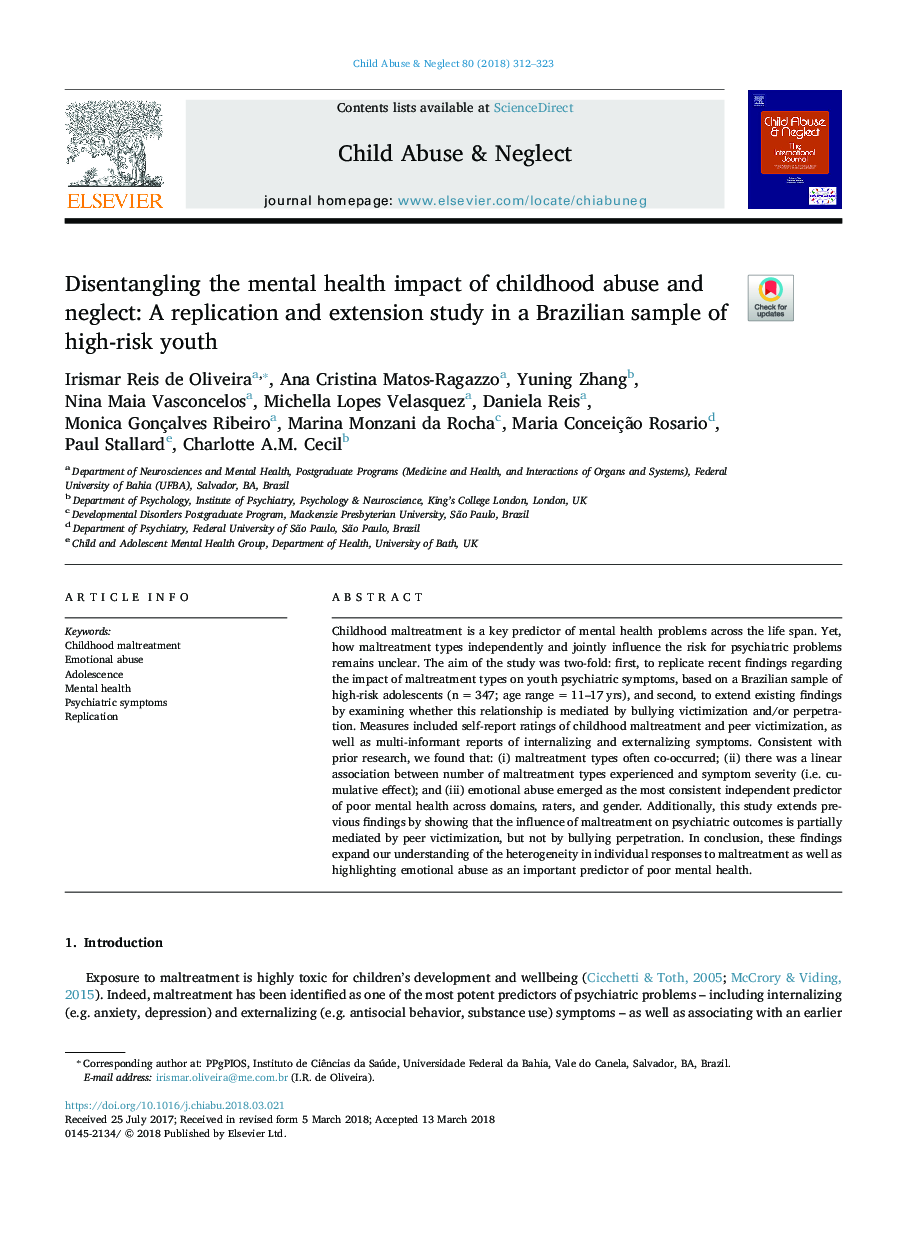| Article ID | Journal | Published Year | Pages | File Type |
|---|---|---|---|---|
| 6831968 | Child Abuse & Neglect | 2018 | 12 Pages |
Abstract
Childhood maltreatment is a key predictor of mental health problems across the life span. Yet, how maltreatment types independently and jointly influence the risk for psychiatric problems remains unclear. The aim of the study was two-fold: first, to replicate recent findings regarding the impact of maltreatment types on youth psychiatric symptoms, based on a Brazilian sample of high-risk adolescents (nâ¯=â¯347; age rangeâ¯=â¯11-17â¯yrs), and second, to extend existing findings by examining whether this relationship is mediated by bullying victimization and/or perpetration. Measures included self-report ratings of childhood maltreatment and peer victimization, as well as multi-informant reports of internalizing and externalizing symptoms. Consistent with prior research, we found that: (i) maltreatment types often co-occurred; (ii) there was a linear association between number of maltreatment types experienced and symptom severity (i.e. cumulative effect); and (iii) emotional abuse emerged as the most consistent independent predictor of poor mental health across domains, raters, and gender. Additionally, this study extends previous findings by showing that the influence of maltreatment on psychiatric outcomes is partially mediated by peer victimization, but not by bullying perpetration. In conclusion, these findings expand our understanding of the heterogeneity in individual responses to maltreatment as well as highlighting emotional abuse as an important predictor of poor mental health.
Keywords
Related Topics
Health Sciences
Medicine and Dentistry
Perinatology, Pediatrics and Child Health
Authors
Irismar Reis de Oliveira, Ana Cristina Matos-Ragazzo, Yuning Zhang, Nina Maia Vasconcelos, Michella Lopes Velasquez, Daniela Reis, Monica Gonçalves Ribeiro, Marina Monzani da Rocha, Maria Conceição Rosario, Paul Stallard, Charlotte A.M. Cecil,
